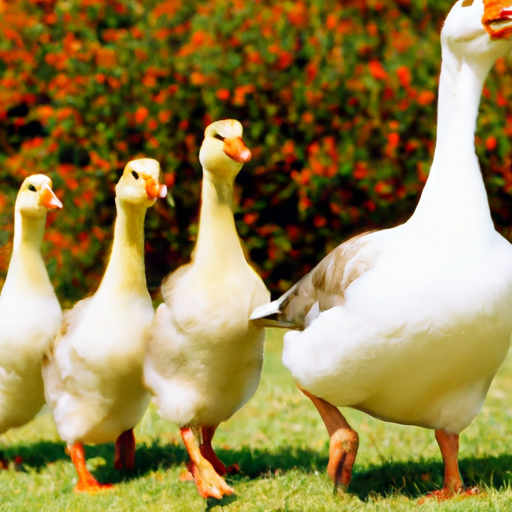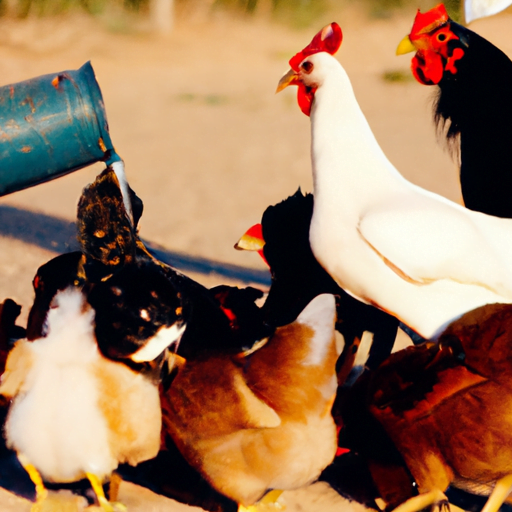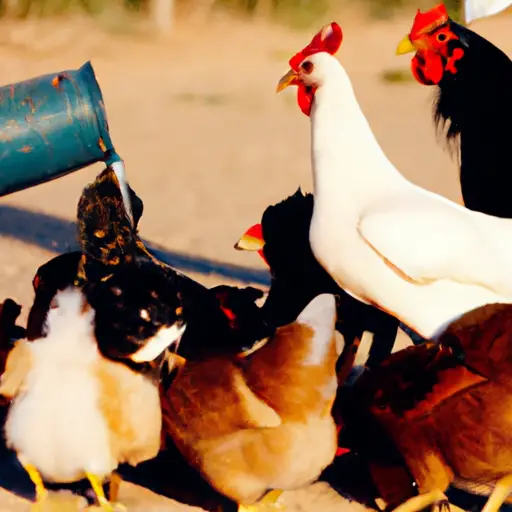So you’re interested in starting a small farm, huh? That’s awesome! You’ve probably got a lot of questions, and one of the first things you’re probably wondering about is what animals would be the best fit for your farm. Well, you’re in luck because I’ve got some information to share with you.
When it comes to small farms, there are a few animal choices that tend to be popular among farmers. One of the top choices is chickens. They’re relatively low-maintenance, provide fresh eggs, and can even help control pests in your garden. Plus, if you’re into self-sufficiency, chickens are a great addition to any small farm.
Another animal that works well on small farms is goats. These curious creatures are known for their ability to eat almost anything, which can be really helpful when it comes to clearing brush or maintaining your land. Plus, just like chickens, goats also provide a valuable resource – milk. So if you’re interested in making your own cheese or soap, goats might be the perfect fit for you.
And let’s not forget about bees! Keeping bees might not be the first thing that comes to mind when you think of animals for a small farm, but they can actually be really beneficial. Bees are excellent pollinators, which means they can help your garden thrive. Plus, you can even harvest your own honey and beeswax, which is a sweet bonus.
These are just a few options to consider when it comes to choosing animals for your small farm. In our upcoming article, we’ll dive deeper into each of these choices and provide more information to help you make the best decision for your farm. So stay tuned to learn more!

Top Animal Choices for Small Farms
If you’re considering starting a small farm, one of the most important decisions you’ll have to make is choosing the right animals to raise. The animals you choose will depend on the specific needs of your farm and the goals you have in mind. In this article, we’ll explore some of the top animal choices for small farms and discuss the benefits, breeds, and care requirements for each.
Identifying Your Farm’s Needs
Before you can begin choosing animals for your small farm, it’s essential to identify your farm’s needs. Consider factors such as available space, climate, and the resources you have at your disposal. Are you looking to produce meat, dairy products, eggs, or fiber? Do you have enough land for grazing, or will you need to provide additional feed? Assessing your farm’s needs will help you make informed decisions when it comes to selecting the right animals.
Considerations for Small Farm Animals
When choosing animals for a small farm, it’s crucial to take certain factors into account. Consider the animals’ size, temperament, maintenance requirements, and adaptability to your climate. Some animals require more space and larger enclosures, while others may be more suited to smaller areas. Additionally, consider the potential profitability of each animal and whether it aligns with your farm’s goals.
Popular Animals for Small Farms
Now, let’s take a closer look at some popular animal choices for small farms:
Cattle
Cattle can be an excellent choice for small farms, especially if you have enough land for grazing. They provide a steady source of meat or dairy products. When raising cattle on a small farm, it’s essential to choose the right breeds. Some popular breeds for small farms include Dexter, Hereford, and Angus. Caring for cattle involves providing proper shelter, ample grazing space, regular veterinary care, and a balanced diet.
Goats
Goats are versatile animals that can be raised for milk, meat, or fiber production. They are known for their adaptability and can thrive in various climates. Some popular goat breeds for small farms include Nigerian Dwarf, Nubian, and Alpine. Caring for goats on a small farm involves providing proper shelter, fencing, regular veterinary care, and a balanced diet.

Poultry
Raising poultry on a small farm can be a rewarding venture. Chickens, ducks, and turkeys are popular choices for their meat and eggs. When choosing poultry breeds for a small farm, consider factors such as egg production, meat quality, and adaptability to your climate. Some popular breeds for small farms include Rhode Island Red, Plymouth Rock, and Pekin ducks. Caring for poultry involves providing a secure coop, regular feeding, proper hygiene, and protection from predators.
Rabbits
Rabbits are an often-overlooked animal choice for small farms, but they can provide a steady source of meat and fur. They require minimal space and are relatively easy to care for. Popular rabbit breeds for small farms include New Zealand, Californian, and Flemish Giant. Caring for rabbits involves providing proper shelter, regular feeding, and ensuring their safety from predators.
Sheep
Sheep are valued for their meat, milk, and wool. They are known for their hardiness and adaptability to various environments. When choosing sheep breeds for a small farm, consider factors such as wool quality, meat production, and resistance to diseases. Some popular breeds for small farms include Suffolk, Shetland, and Dorper. Caring for sheep involves providing proper shelter, grazing areas, regular veterinary care, and a balanced diet.
Pigs
Pigs can be a profitable choice for small farms, as they provide meat and can be raised for breeding. They require a dedicated space and a sturdy enclosure. Popular pig breeds for small farms include Yorkshire, Hampshire, and Tamworth. Caring for pigs involves providing proper shelter, nutritious feed, regular veterinary care, and ensuring their safety.
Honey Bees
Keeping honey bees on a small farm can have numerous benefits, including pollination, honey production, and beeswax. Bees are vital for the health of plants and crops. When choosing honey bee species for a small farm, consider factors such as temperament, honey production, and suitability to your climate. Caring for honey bees involves providing proper hives, regular inspection, and ensuring their access to flowering plants.
Alpacas and Llamas
Alpacas and llamas are gaining popularity among small farmers for their fiber production and as unique livestock. They are relatively low-maintenance animals and can be kept for their wool, as pets, or for breeding. When choosing alpaca and llama breeds for a small farm, consider factors such as fiber quality, temperament, and adaptability to your climate. Caring for alpacas and llamas involves providing proper shelter, regular grooming, and regular veterinary care.
Conclusion
In conclusion, choosing the right animals for your small farm is a decision that should be carefully considered. Identify your farm’s needs and goals, and select animals that are well-suited to your available space, climate, and resources. Whether you choose cattle, goats, poultry, rabbits, sheep, pigs, honey bees, or alpacas and llamas, providing proper care and attention will ensure the success and well-being of your animals on your small farm.




